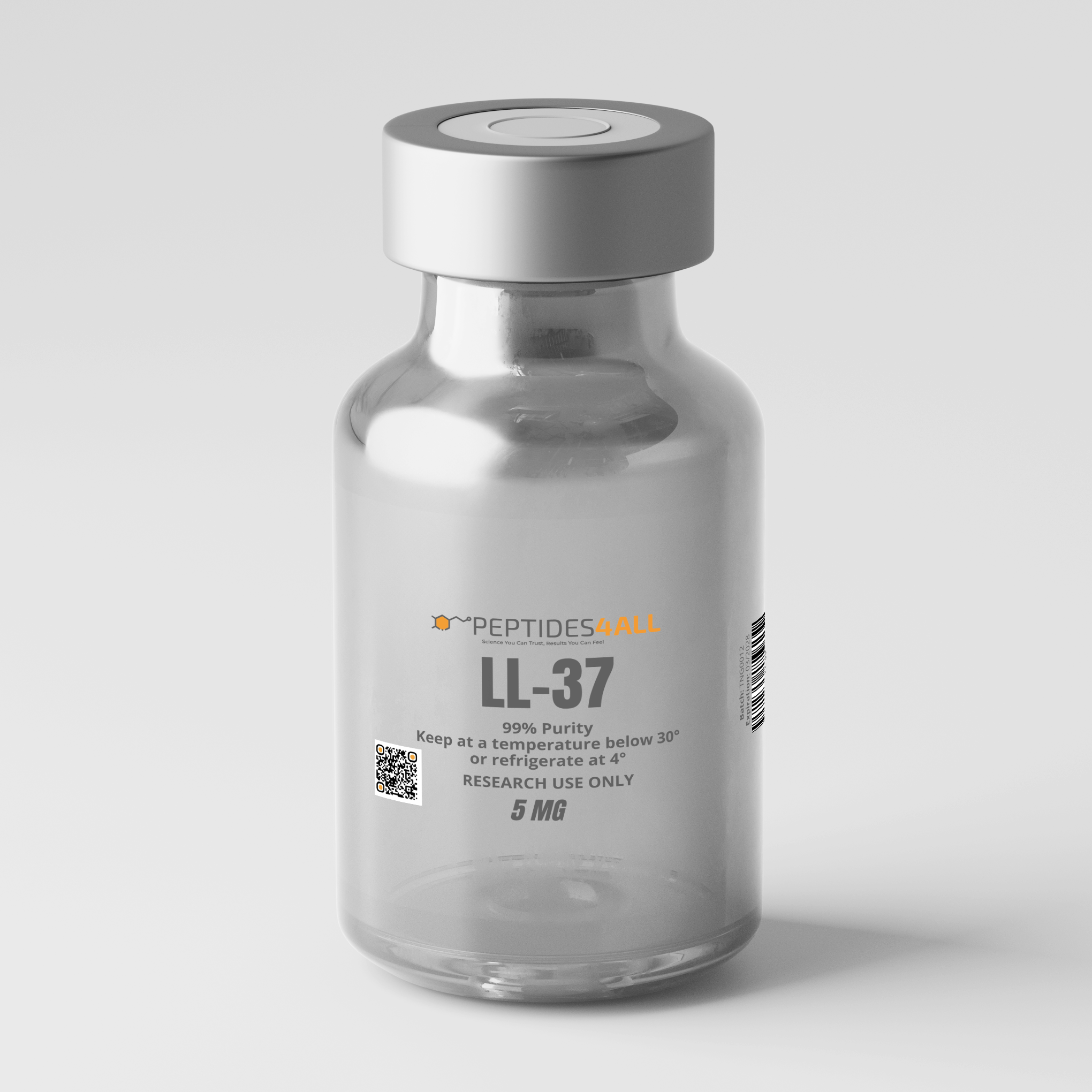CAS Number: 154947-66-7
Sequence: Leu-Leu-Gly-Asp-Phe-Phe-Arg-Lys-Ser-Lys-Glu-Lys-Ile-Gly-Lys-Glu-Phe-Lys-Arg-Ile-Val-Gln-Arg-Ile-Lys-D-Phe-Leu-Arg-Asn-Leu-Val-Pro-Arg-Thr-E-Ser
Chemical Description
LL-37 is a cationic, amphipathic peptide corresponding to the C-terminal fragment of the human cathelicidin protein (hCAP18). Its structure is defined by an alpha-helix conformation that grants it a unique affinity for anionic lipid bilayers and lipopolysaccharides (LPS). In the laboratory, LL-37 is extensively studied for its capacity to interact with the Formyl Peptide Receptor 2 (FPR2) and modulate intracellular signaling cascades related to chemotaxis and apoptosis in vitro.
Research Applications
This compound is strictly for laboratory research use in the study of:
- Membrane Interaction Kinetics: Investigation of peptide insertion mechanisms into phospholipid bilayers and pore formation dynamics.
- LPS Neutralization: In vitro analysis of the binding affinity between the peptide and bacterial endotoxins (Lipopolysaccharides) to study inflammatory signaling suppression.
- Chemotactic Assays: Research into the migration of neutrophils and epithelial cells via FPR2 receptor activation in culture dishes.
Technical Specifications
- Molecular Formula: C205H340N60O53
- Molecular Weight: 4493.3 g/mol
- Purity: >99% (determined by HPLC)
- Appearance: Lyophilized White Powder
Presentation & Handling
- Form: Supplied as lyophilized peptide in sterile vial.
- Reconstitution: Use bacteriostatic water or 2% procaine; swirl gently (do not shake vigorously).
- Storage: Store at –20 °C, protected from light and moisture. After reconstitution, use according to research protocols and handle under sterile conditions.
Disclaimer: For Research Purposes Only
This content is provided strictly for laboratory research purposes and does not constitute an endorsement or recommendation for any non-laboratory application. The information provided regarding specific peptides is for educational and informational purposes only and must not be construed as medical, clinical, or legal guidance, nor as an encouragement for use in humans or animals.
Peptides described here are solely for use in structured scientific study by qualified researchers. We advise consulting with laboratory safety officers or research experts prior to handling these materials. The expectation of responsible, ethical utilization of this information for legitimate investigative and scholarly objectives is paramount. This notice governs all content on this site.
